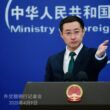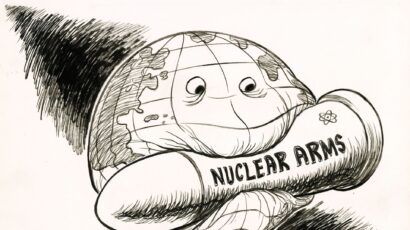Half-measures won’t stop missile proliferation
By Masako Ikegami, August 15, 2016
Could the threats posed by missiles be reduced, as my roundtable colleague WPS Sidhu suggests, if nuclear-armed nations adopted no-first-use policies and de-alerted their missile forces? Certainly. If, for example, the Obama administration actually declares the no-first-use policy that it's reported to be considering, nations such as China would have less incentive to strengthen their nuclear second-strike capability. Moreover, as Sidhu points out, the steps he proposes would be in accordance with the principles underlying the Intermediate-Range Nuclear Forces Treaty (INF Treaty)—an instrument that, in my view, could form a basis for "eliminat[ing] the twin threats of missiles and non-strategic nuclear weapons."
But the steps Sidhu proposes wouldn't stop missile proliferation. Why? To begin with, though de-alerting weapons and establishing no-first-use policies would reduce the risk of accidental nuclear war, they would not necessarily reduce nuclear arsenals—and nuclear arsenals are among the main drivers of missile proliferation. Nuclear doctrine and alert status are separate issues from the size of arsenals, and nuclear-armed nations could de-alert their missile forces and adopt no-first-use policies on a universal basis while leaving their actual arsenals untouched. No-first-use and de-alerting have little to do with the founding principle underlying the INF Treaty—the idea that nuclear arsenals should be reduced or eliminated, and that this is the best way to prevent missile proliferation.
Moreover, de-alerting and broad adoption of no-first-use might not even prevent nuclear war in tense situations that involve severely asymmetrical force concentrations. Pakistan maintains a nuclear first-use policy as a counterweight to India's superiority in conventional forces. China has become ambiguous about the long-term future of its no-first-use policy. It's easy to imagine these nations using nuclear weapons first if they were losing a major conventional conflict.
It's also worth recalling that both Beijing and Pyongyang, when they conducted their first nuclear tests, claimed that US nuclear threats and blackmail had compelled them to go nuclear. Nuclear threats trigger severe insecurity in the nations that are threatened—and insecurity has driven some non-nuclear nations to develop nuclear weapons, while others have engaged in missile proliferation. Indeed, the essential issues in missile proliferation are threats, blackmail, and psychological insecurity. These issues cannot be adequately addressed by technical measures such as missile technology controls, de-alerting, or no-first-use policies.
Thomas Schelling, when accepting the 2005 Nobel Prize in economics, said that a "nearly universal revulsion against nuclear weapons" had since 1945 "been cultivated through universal abstinence." But he questioned "whether the widespread taboo against nuclear weapons"—"an asset to be treasured"—would continue to survive. Missile proliferation has the potential to lower the threshold for using nuclear weapons.
Indeed, a "Cuban Missile Crisis of the 21st century" could easily be triggered as nuclear-armed states in tense regions engage in missile proliferation—particularly if those regions lack solid platforms for confidence-building. In the Middle East and Northeast Asia, areas of prime concern, robust efforts to establish confidence are urgently needed. Remember, the INF Treaty was preceded by a decades-long confidence-building effort during the depths of the Cold War, often implemented through the Organization for Security and Co-operation in Europe (which has more recently been credited for its conflict prevention efforts in Ukraine). It is through persistent, long-term efforts at regional confidence-building that Asian or Middle Eastern versions of the INF treaty might eventually be realized.
Topics: Nuclear Weapons, Technology and Security
Share: [addthis tool="addthis_inline_share_toolbox"]














